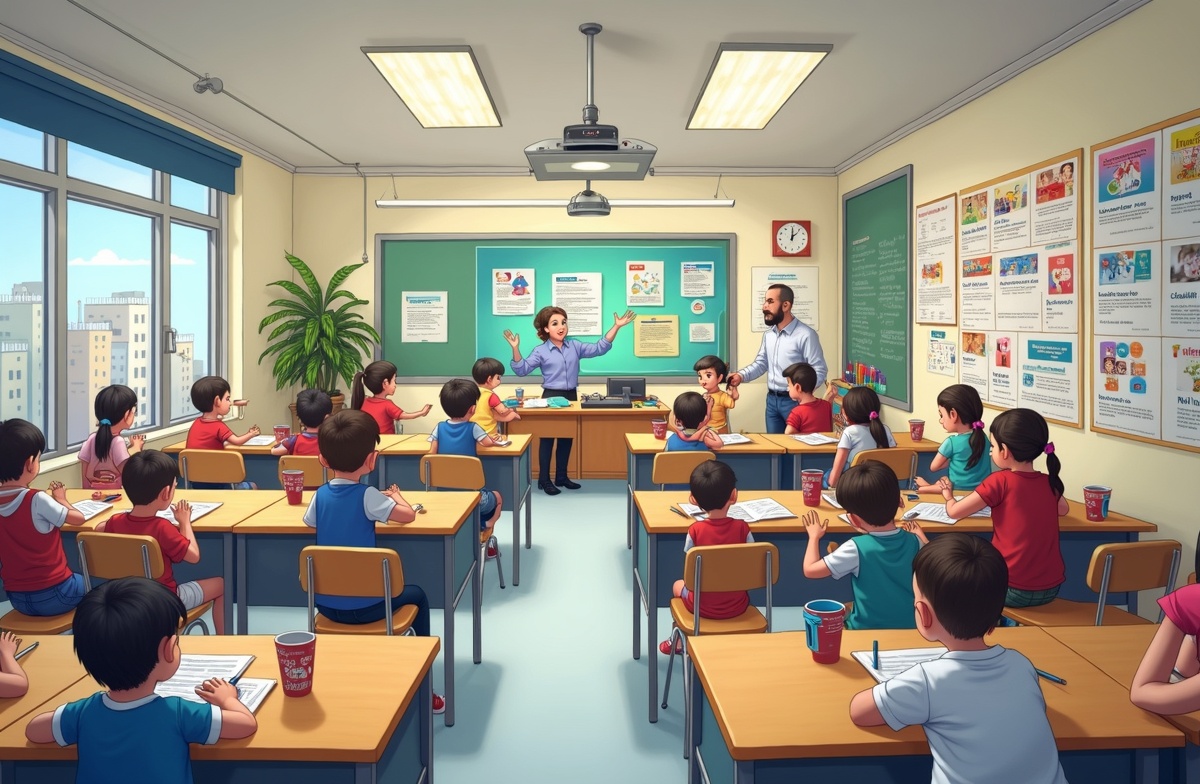Israeli Schools: Structure and Educational Features
Reading time: 7 minutes
- The education system is divided into three stages: elementary, middle, and high school.
- There are different types of schools: state, state-religious, Arab, and private.
- The educational process includes important subjects and specializations for high school students.
- Parents play an active role in the educational process and can use additional resources.
- New immigrants may face difficulties and should study the system in advance.
Structure of the School System |
Features of the Educational Process |
Types of Schools and Their Differences |
Role of Parents and Additional Resources |
Practical Tips for New Immigrants
Structure of the School System
The education system in Israel is divided into three main stages: elementary school (grades 1-6), middle school (grades 7-9), and high school (grades 10-12). Compulsory education begins with kindergarten and continues until the completion of 12th grade. Schools are divided into state, state-religious, Arab, and private, each following its own curriculum. Special attention is given to preparation for the matriculation exams (“bagrut”), which open the path to higher education.
Features of the Educational Process
The school year in Israel begins on September 1st and ends at the end of June. Core subjects include mathematics, Hebrew, history, English, and natural sciences. An important feature is the study of Jewish traditions and history. In high school, students choose a specialization – technical, humanities, or scientific. Many schools offer additional clubs and programs, such as sports sections or music classes. To find tutors or study materials, you can post an ad in the Services section.
Types of Schools and Their Differences
There are several types of schools in Israel: state (“mamlachti”), where most children study; state-religious (“mamlachti-dati”), combining secular and religious subjects; Arab schools with instruction in Arabic; and private institutions. Schools with special pedagogical approaches, such as Montessori or Waldorf schools, are also distinguished separately. When moving to another city, it’s important to research available options in advance, using the Real Estate section to find housing near a suitable school.
Role of Parents and Additional Resources
Active parental involvement in school life is a key element of a child’s success. Parent committees organize events, help with educational issues, and influence school policy. To support learning outside of school, many families hire tutors or use educational online platforms. If you’re looking for work in education or want to offer your services, the Jobs section can help find suitable vacancies or candidates.
Practical Tips for New Immigrants
New immigrants often face difficulties when integrating into the Israeli school system. It’s recommended to familiarize yourself with local educational standards in advance, visit several schools, and talk with teachers. To help with adaptation, you can find bilingual schools or support centers. Don’t forget that on our platform you can easily sell or buy textbooks, school uniforms, and other items through the Second Hand section.
Knowledge of the structure and features of Israeli schools allows parents to make informed choices and support children in the educational process. From choosing the right educational institution to finding additional resources – every step is important for successful integration into the education system. Remember that by posting ads on our site, you automatically receive translation into the four main languages of Israel: English, Russian, Arabic, and Hebrew. This significantly expands the audience and increases the chances of a quick response, whether it’s finding a tutor, selling textbooks, or renting housing near a good school.
Frequently Asked Questions
- How to choose the right school for a child?
- What additional resources can help with learning?
- How can parents participate in school life?
